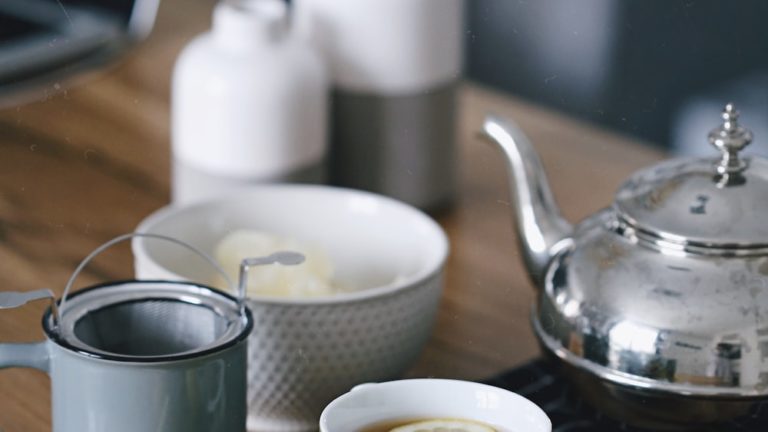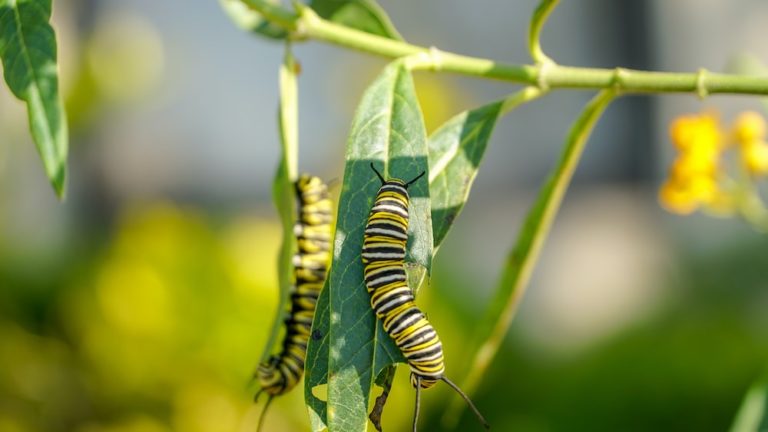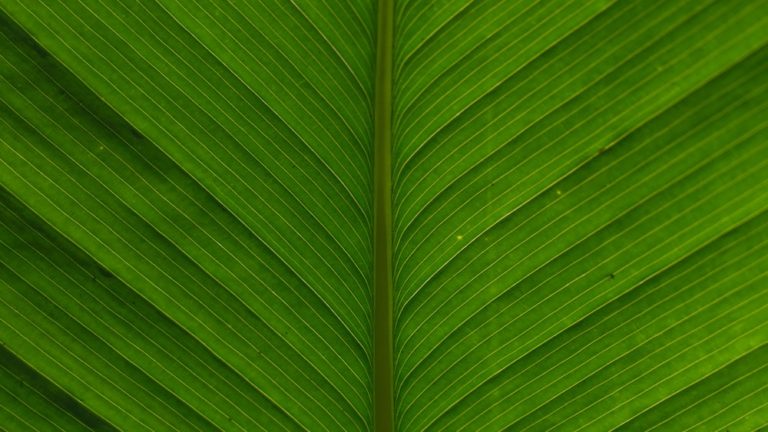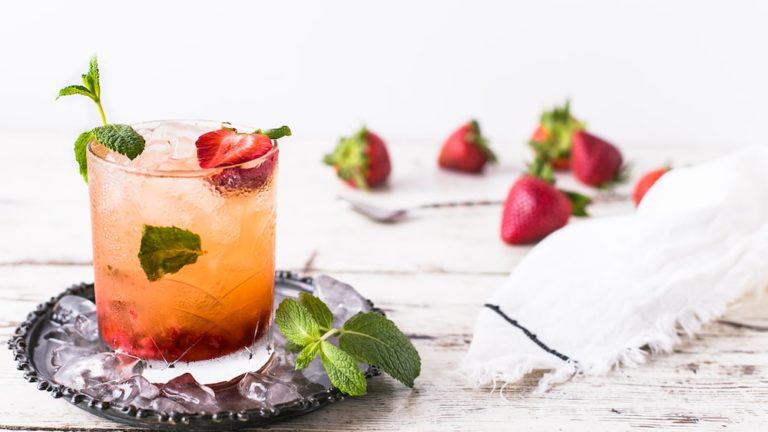Discover The Benefits Of Herbal Tea For Your Health
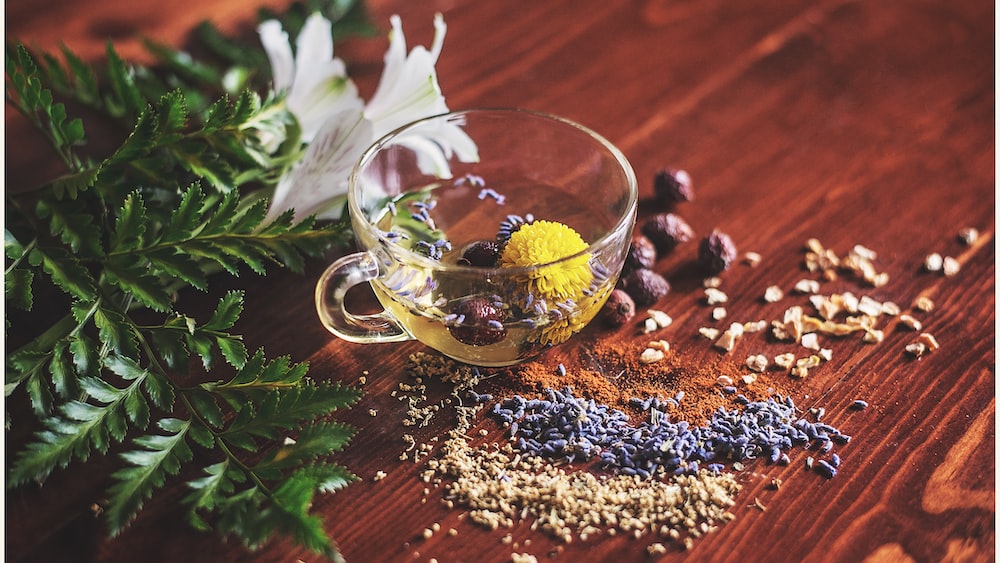
Discover The Benefits Of Herbal Tea For Your Health
It might come as a shock to hear this, but tea isn’t really just about bagging it and dunking it. I know, revolutionary stuff! So, here we are, at the edge of what you thought you knew and what is yet to be discovered. Buckle up, Tea aficionados, health-conscious warriors and seekers of wellness, we’re diving into the world of herbal tea. After all, what could be more exciting than sipping wellness in each cup?
Now, you might be sitting there, teacup in hand, twitching your eyebrow and wondering, “herbal tea, really?” Well, yes! Trust me, this is going to be more exhilarating than that steamy action movie you watched last night. So without further ado, let’s world-tea your mind and set off on this exquisite adventure type primarily loved by tea enthusiasts!
Understanding Herbal Tea
Hold on to your teacups! We’re traversing into the realm of herbal tea, where we’ll grapple with the alluring concepts that make our hearts throb and our taste buds tingle. Here’s a spoiler: It’s more than just mixing leaves with hot water. Let’s delve deeper, shall we?
What is Herbal Tea?
Now, you might think herbal tea is simply an adulteration of the sacred breakfast beverage we all know and love. Well, it might rock your world to know that herbal tea isn’t technically tea. Phew! Shocking, right? Let’s unscramble this conundrum.
You see, herbal tea, or as the wise men call it, “tisane,” is infused with the goodness of herbs, flowers, seeds or roots. Unlike traditional teas which originate from the Camellia Sinensis plant, herbal teas are a compilation of carefully dried and prepared botanical elements. The result is a cupful of sheer bliss and wellness, with flavors that can surprise even the pickiest connoisseur.
Herbal tea, also known as tisane, is a compilation of carefully dried and prepared botanical elements that infuse the goodness of herbs, flowers, seeds, or roots, resulting in a cupful of sheer bliss and wellness with surprising flavors.
Different Types of Herbal Tea
So, let’s get to the heart of the tea party. Herbal teas come in as many shades as your imagination allows. Bearing that in mind, let’s get a taste of the variety of herbal teas that are ready to crash the dull-tea-party.
If you were a cup of tea, you’d probably be Chamomile, the equivalent of a warm blanket on a chilly evening. The light, yellow cup of tranquility has a subtle apple-like taste, perfect for those serene evenings. Next in line is Peppermint tea with its minty potion offering a refreshing escape from everyday chaos (?). Trust me; it’s a whirlpool of tingling sensation.
Lastly, but not the least of our exquisite tea catwalk, the queen, Echinacea tea. With an earthy flavor profile and a slight hint of mint, this tea is the unsung immunity-boosting hero we all need. In the end, every cup of herbal tea has its own persona just waiting to be explored.
Health Benefits of Herbal Tea
At this point, you might be wondering, “Okay, they taste great, but what’s in it for me?” Here is the kicker, my friend; these magical elixirs don’t just tantalize your taste buds but also shelter an array of health benefits. So prepare to be amazed!
Antioxidant Properties of Herbal Tea
Okay, let’s start with the big guns – antioxidants. If you’re picturing little green heroes charging at harmful invaders, then you’re spot on. Herbal teas are laden with various antioxidants that undertake the noble mission of battling destructive agents in your body.
A few swigs of this nutrient-rich potion, and you could observe low cholesterol levels. (You probably heard that right in your doctor’s stern voice.) Not just that, but these antioxidants may also counteract the effects of aging. And there you have it, folks, possible fountain of youth in a cup of tea.
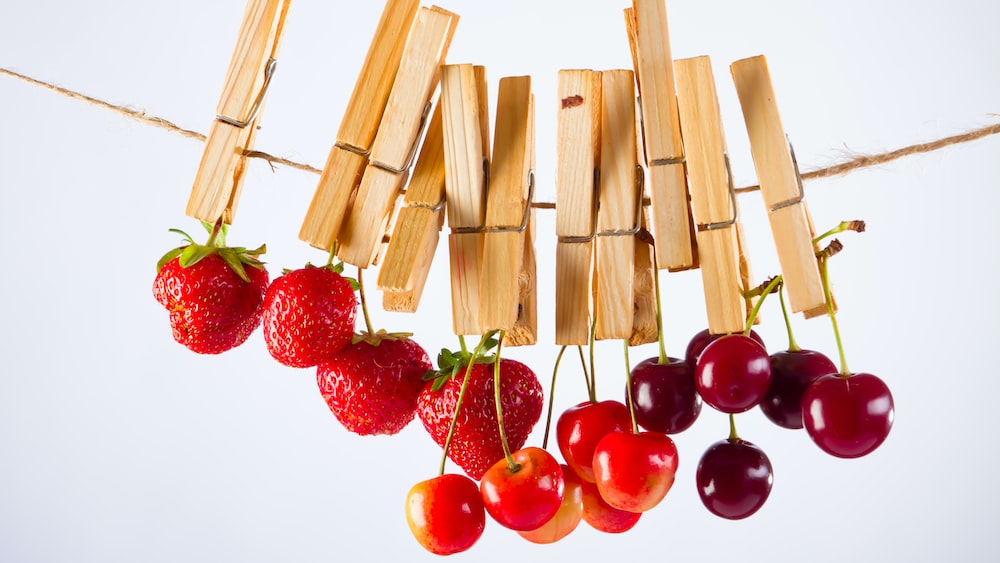
But here’s the clincher, the antioxidant properties don’t stop there; they also help in securing your skin from damage through pollution and UV light. Are you starting to see the incredible effects of this humble cuppa?
Herbal Tea and Digestive Health
Have you ever felt like a hot air balloon after a hearty meal? Well, herbal tea offers a lifeline. Many teas, such as peppermint and ginger, have properties that aid indigestion and soothe an upset stomach. Consider them your gastronomic superallies.
Studies show that peppermint tea relaxes digestive muscles and allows swift passage of food and wind (We all know how important that can be!). On the other hand, ginger tea can settle nausea and curb vomiting. These herbal teas are also known to ease inflammation in your guts, building a happier and healthier you.
Trust me, the next time your tummy grumbles, reach out to your herbal buddy, and it might just thank you!
Herbal Tea for Stress and Anxiety Relief
Imagine a day when nothing is going right. You’ve lost your keys, your boss decided to assign extra work for the weekend, and the world seems like it’s crashing around you. As if on cue, you glimpse your chamomile tea. Slowly, tranquility fills you up sip by sip. That’s the magic of herbal tea for you.
The aromatic appeal of chamomile tea and other herbal blends has been known to induce relaxation and sleep. In essence, these teas act as a calming agent in our everyday chaotic life. No need for that stress ball anymore, when a delicious cup could soothe you into serenity. Trust me; peace is just a brew away!
Herbal Tea and Cardiovascular Health
Finally, it’s time for some heart-to-tea chat. Having a regular encounter with herbal teas, particularly those loaded with antioxidants, may help reduce the risk of heart diseases.
Remember our magical antioxidants? They’ve been linked to decreasing blood pressure and cholesterol. The flavonoids (Yes, the cool kids of botanical compounds) present in certain herbal teas like hibiscus can lower hypertension and benefit the overall health of our cardiovascular system.
Indeed, infusing herbal teas into your routine could be your heart’s silent request. A small step for a cup, a significant leap for your heart!
Having a regular encounter with herbal teas, particularly those loaded with antioxidants, may help reduce the risk of heart diseases.
Popular Herbal Teas and Their Benefits
Here we go, folks! An official wrap-down (ahem, count-down) on an all-star list of herbal teas that aim to melodiously fine-tune your body’s orchestra on the inside! Let’s unravel this treasure trove of diversity, where each tea leaf sings its unique note and brings its character to the melange.
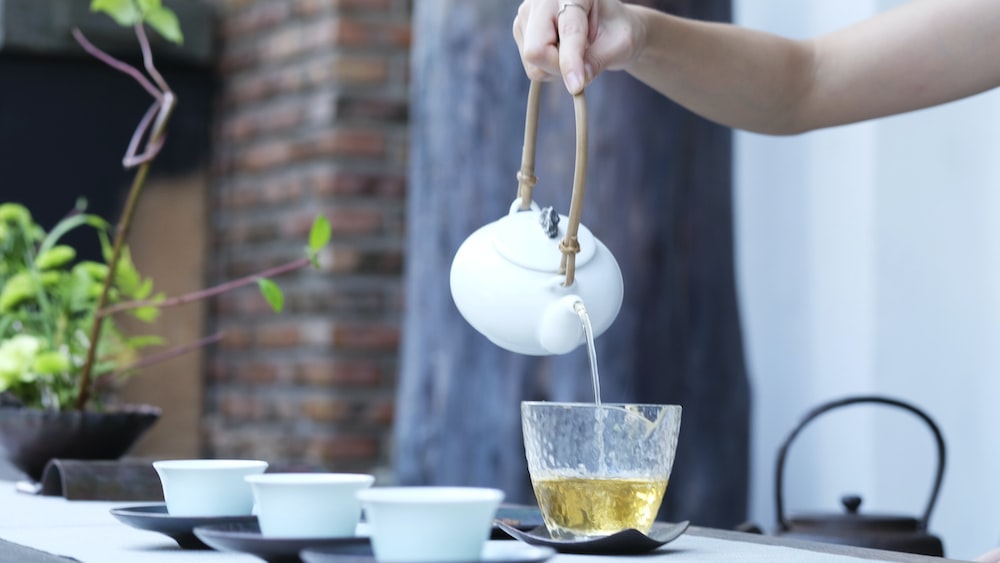
Chamomile Tea
Have you ever dreamt of lounging in a meadow full of daisies, luxuriating in the breath of a serene, quiet day? That’s what chamomile tea feels like. It’s nature’s lullaby, known to induce a state of calm and restful sleep, often cradling those suffering from insomnia. Not just that, research says it may also help with those pesky menstrual cramps ladies. You might just find chamomile tea winking at you from the supermarket aisle the next time you go shopping, and why wouldn’t it?
It ups its game further by throwing indigestion and gut trouble out of the arena. Studies suggest chamomile is a gentle herb that aids digestion and soothes gut inflammation, earning its badge (or should we say leaves?) of nobility in the digestive system. Now that’s a whole lot of benefits for one little flower, isn’t it?
Peppermint Tea
Who says superheroes only dwell in comic books or on the big screen? In the world of teas, peppermint masks up to save the day. This superhero has a refreshing melange of zesty and soothing notes.
Peppermint tea has been known to calm your turbulent tummy seas. It’s like a trusty lighthouse guiding ships (gas and bloating) safely away from the rocky shoals of indigestion. Don’t be surprised when your taste buds break into a happy dance from the invigorating minty tingle.
Ginger Tea
Now, if herbal tea was a rock concert, there’s no doubting ginger tea would be headlining. One sip of this, and BAM! – prepare for a zesty, unearthly symphony! It’s like your own personal Tea-IT team (Wait, did someone say tea-geek?).
Ginger is the rockstar of the kitchen and undeniably so, known to assault ailments like nausea, upset stomach, and motion sickness, making them meet their doom. Add a squeeze of lemon, a dash of honey and you’ve got yourself an ambrosial, healing brew. And well, if you’re nursing a bad throat, ginger tea can swoop down like a soothing balm, offering comfort and relief.
Famous in the kitchens of Asia since time immemorial, ginger is also known for its anti-inflammatory and antioxidant properties. It’s a bit like that scrappy underdog in movies, underestimated until it saves the day.
Hibiscus Tea
Picture this. A crimson sunset in your teacup, the tart and tangy notes tickling your palate like a parfait of exotic berries. Hibiscus tea is just that! This tropics-native has been known to charm blooming tea enthusiasts around the world with its vibrant hue and distinct flavor.
Hibiscus doesn’t stop with just being pretty. Beyond its beautiful, flamboyant appearance lie benefits that make even the gloomiest clouds of concern dissipate. From managing blood pressure to helping keep cholesterol levels in check – it’s a feisty protector of cardiovascular health. Hibiscus, in its tea form, is also packed with antioxidants, ready to put their dukes up against harmful free radicals. Now, that’s what we call blooming wonder!
Echinacea Tea
Meet Echinacea, a heady purple wildflower from the big family of daisies. While it may be a tongue twister of a name, it’s a rather straight shooter when it comes to boosting your immune system.
This potent herbal player resolutely stands guard, supporting immune health and fighting off common cold and flu. There could be a moment when you’d want to swap your duvet of tissues for a mug of comforting Echinacea tea. Its immunity-enhancing properties truly shine, making you wonder if Echinacea tea is, after all, a potion of resilience in disguise!
How to Brew Herbal Tea
We’ve stirred up your curiosity, haven’t we? Well, it’s time to unveil the art of brewing these divine concoctions. While stirring the perfect brew seems like a ceremonious ritual, it’s really as simple as a teapot jig. So, why don’t you join us for this flavorful tango?
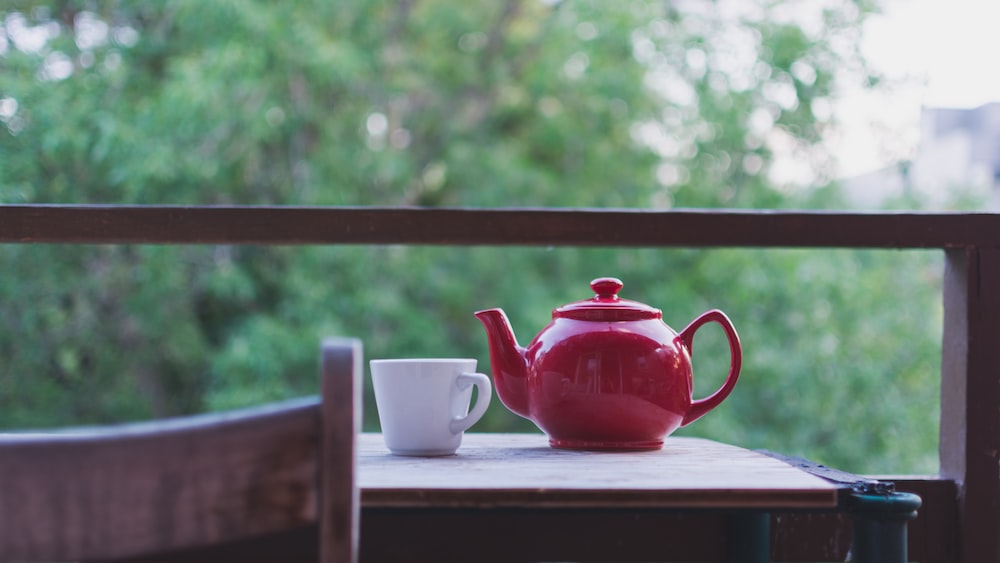
Ideal Brewing Temperature for Herbal Tea
There’s a myth out there that herbal teas are very forgiving. Burn them, freeze them, they won’t fuss. But let’s set the record straight – each type of herbal tea deserves its unique TLC when it comes to brewing temperature.
For instance, the ideal brewing temperature for Camomile and peppermint is generally 200°F-212°F (93°C-100°C), just off the boil, so they can uncurl and release their flavours like a sleepy cat stretching. On the other hand, Hibiscus doesn’t shrug from the heat and is best steeped at boiling temperature. Consider using a thermometer to get it just right. Or try using a kettle with adjustable settings to get zapped with the perfect infusion!
Brewing Time for Herbal Tea
Different teas have different mantra for steep times. While ginger tea likes to play hard to get, demanding a solid 10-15 minutes of steep time, chamomile is content basking in hot water for around 5-7 minutes. Peppermint, the shy superhero, prefers to linger for about 7-10 minutes, whilst the exotic hibiscus makes you wait a generous 15-20 minutes to truly make its presence felt.
So, timing becomes an essential part of the brewing equation. Picture it to be similar to selecting different microwave settings, popcorn for peppermint, baked potato for ginger. Given this variety, it’s best to refer to the brewing instructions if available, or better still – trust your palate and adjust the steep time to taste! But no matter the brew, it’s all about the patience and respect we bestow upon these tea-time spectacles. After all, isn’t a well-brewed cup of herbal tea worth the wait?
Timing is an essential part of brewing tea, with different types requiring different steep times to truly bring out their flavors and benefits.
Purchasing and Storing Herbal Tea
This isn’t a high-stakes purchase like a car or a house, but buying and storing herbal tea can be a bit of a science itself. How wonderful that a drink, which has been affectionately dubbed the ‘Nectar of the Gods,’ warrants such detailed attention. Now, let’s step into the world of tea purchasing and preservation – it’s like an adventure, except instead of seeking treasure chests and fighting off pirates, we’re choosing herbs and fighting off moisture. Exciting, right?
Tips for Buying Quality Herbal Tea
Quality means a lot when it comes to picking herbal tea. Just imagine this: you’re about to steep a bag of tea, the exciting herbal aroma is tickling your nose, making you anticipate that first magical sip. You take it… and it tastes like hot water with a hint of… let’s say, plant? A stark reminder of why the purchase of quality tea is oh-so-important.
But, how do you find quality tea, you may ask. Well, here are top tips from tea veterans. Look for teas with discernible, whole leaves, avoiding those with too many twigs or dust – the secret handshake in the tea world that screams ‘low grade.’ The tea should smell fresh and the color should be vibrant. Packaging is equally crucial because it protects tea from its arch-nemeses – light, heat, and moisture. Opt for brands that have a strong reputation for quality.
How to Store Herbal Tea for Freshness
Once airborne, the rich aroma of tea can fill a room faster than questionable gossip at a family reunion – fun for the senses, but not so great for tea. Flavored teas and those with delicate buds or white tea are most susceptible to this, losing their potency when not properly stored. This is where the art of tea storage comes in.
Keep your tea in a dark, cool place, away from the stove, oven, or any source of heat. Contrary to popular belief, the spice cabinet is not a top condo for your tea. Airtight containers are the best way to go, keeping out air and moisture. Good tea storage is like a snuggly winter blanket, keep it safe, keep it covered.
Frequently Asked Questions
1. What is the best time to drink herbal tea?
The best time to enjoy herbal tea really depends on the type of tea and what you hope to achieve. Chamomile, for instance, is a perfect companion for winding down in the evening, while a zingy peppermint tea strikes a perfect chord as a refreshing afternoon pick-me-up.
2. Can I drink herbal tea every day?
Drinking herbal tea every day, indeed, depends on the specific tea and the person. Some teas are powerful and may interact with medications or health conditions, hence, if you drink a specific type of herbal tea every day, it’s advisable to consult with health experts or physicians.
3. Does herbal tea have any side effects?
As far as side effects go, herbal teas generally do not present problems for most people. However, considering their potent nature, certain types might interact with specific medications or health conditions. Always consult with your physicians before introducing a new type of herbal tea into your regular diet.

4. Can herbal tea replace regular tea or coffee?
Whether herbal tea can replace regular tea or coffee is a matter of personal preference. Many people find herbal teas to be a wonderful caffeine-free alternative, while others might miss the kick of coffee or the robustness of regular tea in the mornings. It’s all about what your taste buds and body need.
Conclusion
Herbal teas are a remarkable combination of art, culture, science, and health. Whether you’re seeking a nightcap for sweet dreams, a midday booster for your senses, or a health-filled wonder drink, there’s a herbal tea for you.
Throughout this article, we’ve journeyed together through the world of herbal tea. From understanding their place in the beverage arena to exploring health benefits, you are now one step closer to becoming an Herbal Tea Maestro. Now go on, steep into the marvels of the herbal world with a fragrant cup in your hand and a renewed spring in your step.
Signing off with a warm sip, Zoe

